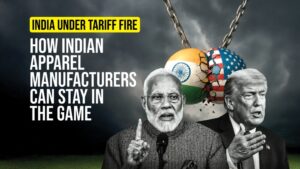
The Indian Government is considering pilot projects that would allow global e-commerce platforms to source products directly from Indian sellers for overseas resale, according to people familiar with the matter.
The Commerce Ministry has held consultations with e-commerce companies, logistics providers and trader associations to explore pilot projects that would enable global platforms to buy products directly from Indian sellers for resale to overseas buyers, sources said.
Under current foreign direct investment (FDI) rules, foreign-owned e-commerce companies are only permitted to operate as marketplaces, not inventory-led models. This prevents them from owning inventory or selling directly to consumers. Instead, they must act as facilitators between buyers and sellers. While these companies can receive 100% FDI under the automatic route, they are restricted from controlling inventory or significantly influencing sale prices, a framework designed to ensure a level playing field for all sellers.
Industry submissions suggested that international marketplace operators and their Indian affiliates could help small businesses, artisans and MSMEs access global markets more efficiently by directly purchasing their goods for confirmed overseas orders. Proposals under discussion include warehousing, obligations on fair pricing, and a clear separation between export-destined and domestic goods to ensure compliance with restrictions on multi-brand retail.
If adopted, the framework could simplify logistics, reduce costs and expand the global reach of sellers in categories such as textiles, handicrafts and niche products. Officials remain cautious though and are prioritising measures to ensure safeguards and adherence to policy limits.
However, three retailer associations voiced opposition to relaxing the rules during a ministry meeting. They argued that any change could disadvantage small Indian businesses, enabling Amazon and Flipkart to continue offering steep discounts and giving preferential treatment to large sellers, which they said would erode market fairness and damage small-scale traders.
Separately, the Ministry of Statistics and Programme Implementation (MoSPI) is preparing to update its benchmark inflation index by incorporating e-commerce data. MoSPI Secretary Saurabh Garg reportedly stated that the Ministry had begun scraping prices from e-commerce websites across 12 cities with populations above 2.5 million and was in discussions with major platforms to secure direct access to their data.






